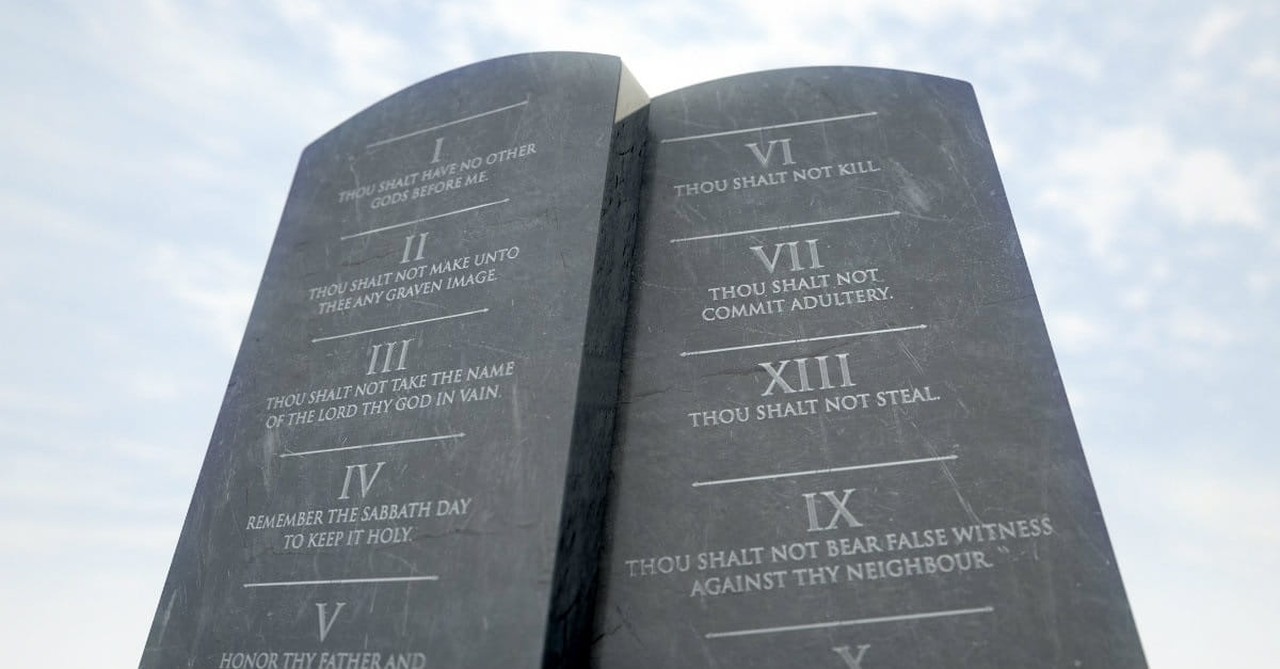Not Many People Know the Surprising Stories Behind These Hymns

Hymns have a special place within Christianity. They are almost inseparable from the act of worship. Through the poetic songs and anthems, Christians throughout the world express their deepest religious emotions and in this way connect not only with God, but with other members of their community. In the following segments, we will talk about some of the most important Christian anthems in history and how they originated.
Image Courtesy: ©Pexels
1. Holy, Holy, Holy! Lord God Almighty

1. Holy, Holy, Holy! Lord God Almighty
SLIDE 1 OF 10
"Holy, holy, holy
Lord, God Almighty
All Thy works shall praise Thy name in earth and sky and sea
Holy, holy, holy
Merciful and mighty
God in three persons blessed Trinity"
This beautiful anthem was written by Reginald Heber, a distinguished English bishop. The hymn itself refers to the Holy Trinity, so during the singing "The World" is being repeated three times. The text of this anthem is actually a paraphrased text from the Revelation of John the First and from the book of the prophecy of Isaiah. This hymn is very special because of its rhythm, which Heber has paid attention to. Most of Heber's hymns and poems were published by his widow after his death in 1826.
*(Image Credit:©Unplash/Photobyfrankmckenna)
2. O Come, O Come, Emmanuel

2. O Come, O Come, Emmanuel
SLIDE 2 OF 10
"O come, O come, Emmanuel
And ransom captive Israel
That mourns in lonely exile here
Until the Son of God appear
Rejoice! Rejoice! Emmanuel
Shall come to thee, O Israel."
O Come, O Come, Emmanuel is the first in a series of very important Christian hymns. It's usually sung during Advent and Christmas Day. As you can see from the title of the anthem, it invokes the arrival of Jesus Christ, for whom the name Emmanuel is used in this anthem or "The Lord is With Us". It is also very important to note that the texts and melodies for this hymn did not arise in parallel. The melody was most likely created sometime in the 15th century, while the Latin text is most likely from the 17th century. Also, the paratext of this song is centuries old.
*(Image Credit:©Thinkstock)
3. Go Down Moses

3. Go Down Moses
SLIDE 3 OF 10
"Go down Moses
Way down in Egypt land
Tell all pharaoes to
Let my people go!"
The hymn Go Down Moses presents a psalm which relates to the Old Testament, especially the book Exodus. It was created within the American, Black Christian tradition. The formed anthem was published in 1872. Basically, it speaks to the deliverance of Israelites from Egyptian bondage by Moses. In particular, roles have been replaced in this hymn due to the specificity of the situation, and the Israelis are actually American slaves, while Pharaoh denotes slaves.
*(Image Credit:©Thinkstock/allanswart)
4. There is a Green Hill Far Away

4. There is a Green Hill Far Away
SLIDE 4 OF 10
"There is a green hill far away,
Without a city wall,
Where the dear Lord was crucified,
Who died to save us all."
This is one of the hymns actually written by a woman. Cecil Frances Alexander was the daughter of an English soldier in 1848 who, at just twenty-five years old, had a collection of songs titled, Hymns for Little Children. As you can see from the name, this poem was created as a type of catechism for children. Along with There is a Green Hill Far Away, there were other songs which over time became noticed by the well-known Alfred Lord Tennyson. The hymn itself sings about one of the most important moments of Christian faith; the crucifixion of Christ.
*(Image Credit:©Thinkstock/Ryan McVay)
5. Shall We Gather at the River?

5. Shall We Gather at the River?
SLIDE 5 OF 10
"Yes, we’ll gather at the river,
The beautiful, the beautiful river;
Gather with the saints at the river
That flows by the throne of God."
The hymn Shall We Gather at the River? was created from the feather of the famous gospel poet, Robert Lowry. The anthem was born in 1864 and its original name was Hanson Place, a shortcut for the Hanson Place Baptist Church in Brooklyn, where Robert Lowry occasionally performed priestly services. The poem itself speaks of the Christian concept of afterlife, so it describes the idea of what paradise will come. Given its poetic and characteristic nature, this hymn has often been used in the soundtrack of Western films.
*(Image Credit:©Thinkstock/RyanTangPhoto)
6. I Come To The Garden Alone

6. I Come To The Garden Alone
SLIDE 6 OF 10
"I come to the garden alone,
While the dew is still on the roses,
And the voice I hear, falling on my ear,
The Son of God discloses."
"And He walks with me, and He talks with me,
And He tells me I am His own,
And the joy we share as we tarry there,
None other has ever known."
The creator of this song is the famous C. Austin Miles of 1912. C. Austin Miles was a highly regarded American songwriter. It's believed this anthem originated in New Jersey, and if it was ideed created in 1912, the song became popular much later in the middle of the 20th century. As far as the text itself is concerned, the hymn speaks of Miles personal relationship with God. In particular, he describes an encounter with God in a garden, where God tells him that he is his. Miles describes the color of God's voice, and simply cannot believe how fortunate he is.
*(Image Credit:Pexels.com)
7. Good News From Heaven The Angels Bring

7. Good News From Heaven The Angels Bring
SLIDE 7 OF 10
"Good news from heav'n the angels bring,
Glad tidings to the earth they sing:
To us this day a Child is giv'n,
To crown us with the joy of heav'n."
This hymn is doubly special because its creator was none other than the famous theologian, reformer, and fruitful writer, Martin Luther. Originally, this song was written as a gift from Martin Luther to his son Hans, who at that time was only five years old. It’s estimated to have been composed somewhere around 1535. Today, it’s famous amongst Christian households everywhere as a Christmas song which speaks of the arrival (i.e. the birth) of Jesus Christ.
*(Image Credit:©Thinkstock/cranach)
8. Joy to the World

8. Joy to the World
SLIDE 8 OF 10
"Joy to the world, the Lord has come
Let earth receive her King
Let every heart prepare Him room
And Heaven and nature sing
And Heaven and nature sing
And Heaven, and Heaven, and nature sing"
Joy to the World is easily one of the greatest Christmas anthems in modern society. It was written chiefly by following motifs from the psalms of Emperor David and the Petkunis of Moses. The hymn itself is actually quite old, being first published in the distant time of 1719. By the end of the 20th century however, Joy to the World became the most prolific Christmas carol in the history of North America. The song itself was written by Isaac Watts, though artists from Handel to Mariah Carey have released their own versions. Today, the hymn is sung during Christmas holidays to commemorate the arrival of Jesus.
*(Image Credit:Thinkstock)
9. O Little Town of Bethlehem

9. O Little Town of Bethlehem
SLIDE 9 OF 10
"O little town of Bethlehem
How still we see thee lie
Above thy deep and dreamless sleep
The silent stars go by
Yet in thy dark streets shineth
The everlasting Light
The hopes and fears of all the years
Are met in thee tonight"
Yet another popular Christian hymn which doubles as a Christmas carol, this song was composed by the widely-acclaimed Phillips Brooks, a priest in the Episcopal Church of the Holy Trinity in Philadelphia. In 1865 Brooks visited Bethlehem in Jerusalem and the experience left a huge impression on his faith, thereby resulting in the anthem we know today. Music for this beautiful piece was written by Lewis Redner, while the text of the hymn speaks of Bethlehem, Jesus Christ, and a prayer for all people to turn to God.
*(Image Credit:©Thinkstock/mastapiece)
10. Jerusalem the Golden

10. Jerusalem the Golden
SLIDE 10 OF 10
"Jerusalem the golden,
descending from above,
the city of God's presence,
the vision of God's love -
I know not, oh, I know not
What joys await us there,
What radiancy of glory,
What bliss beyond compare!"
Our final song, Jerusalem the Golden, dates back to the nineteenth century. The writer of this anthem was John Mason Neale, an Anglican priest and scholar. His inspiration for this work came from a piece of writing called, On Contempt for the World, whose creator was a Benedictine monk named Bernard of Cluny. Jerusalem the Golden began circulation midway through the era, and by its end, was being represented in almost every English service known to Christianity. Interestingly enough, while its text speaks of a golden Jerusalem, the essence of the hymn refers to the paradise waiting for sincere followers of Christ at the end of life.
Samuel Albert is the Editor in Chief of Christianmusicandhymns.com, a blog dedicated to the history and stories behind famous Christian music. This article was used with permission.
Editor's Note: This slideshow was adapted from 10 Great Christian Hymns and Their Histories. To read the original article, follow this link.
*(Image Credit:©Thinkstock/RomoloTavani)
Originally published September 15, 2017.







